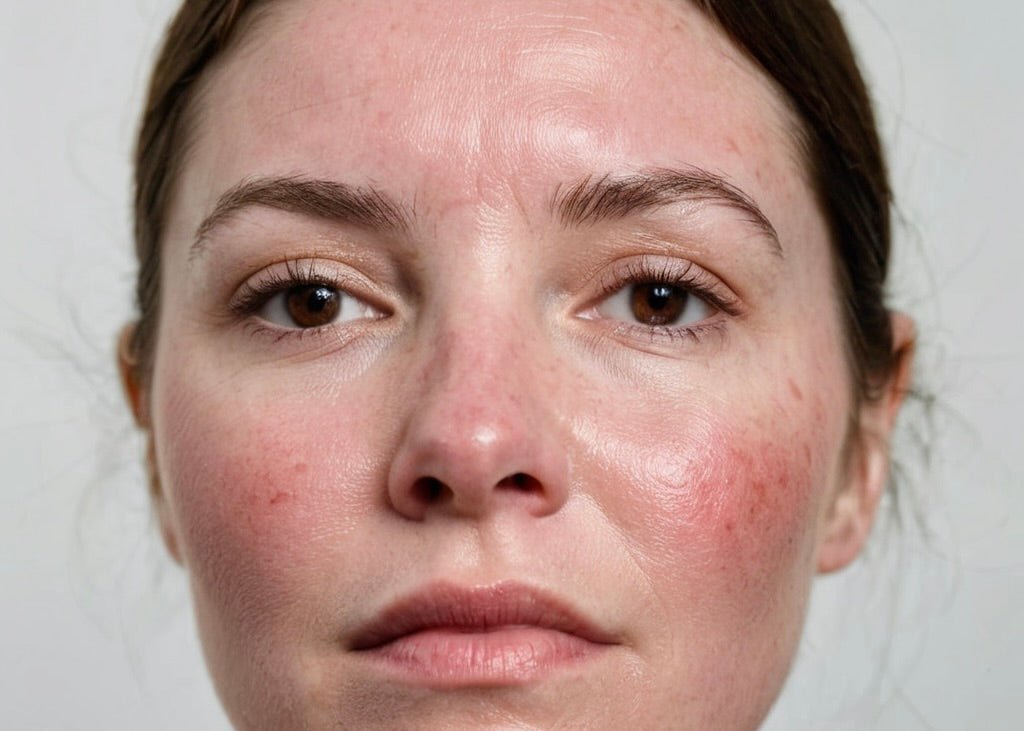
Does Retinol Help with Facial Redness?
Retinol, a derivative of vitamin A, is a popular ingredient in many skincare products. It's often touted for its anti-aging and skin-smoothing benefits. But can it also help with facial redness? Let's explore this topic in depth.
Understanding Retinol
Retinol is a type of retinoid, which is a class of chemical compounds that are vitamers of vitamin A or are chemically related to it. Retinol is used in skincare products for its potential to improve skin texture and tone, reduce the appearance of fine lines and wrinkles, and combat acne.
Retinol works by promoting the production of new skin cells and encouraging the removal of old ones. This process can help to even out skin tone and texture, making your skin look smoother and more youthful.
The Relationship Between Retinol and Skin Redness
While retinol is known for its skin-enhancing benefits, its relationship with skin redness is a bit more complex. Some people find that retinol helps to reduce redness, while others experience increased redness when they first start using retinol products.
This is because retinol can cause irritation, especially when you first start using it. This irritation can lead to redness, dryness, and peeling. However, these side effects usually subside after a few weeks as your skin adjusts to the product.
How to Use Retinol to Help with Facial Redness
If you're considering using retinol to help with facial redness, there are a few steps you can take to minimize potential irritation.
- Start Slow: Begin with a low concentration of retinol and use it sparingly. You can gradually increase the amount and frequency as your skin adjusts.
- Use a Moisturizer: Apply a moisturizer after your retinol product to help soothe and hydrate your skin.
- Protect Your Skin: Retinol can make your skin more sensitive to the sun, so be sure to use a sunscreen during the day.
Choosing the Right Retinol Product
Not all retinol products are created equal. When choosing a product, look for one that contains a low concentration of retinol to start. You should also consider the other ingredients in the product. Natural and sustainable ingredients are not only better for the environment, but they can also be gentler on your skin.
Some natural ingredients to look for include aloe vera, which can help to soothe and hydrate your skin, and green tea extract, which has anti-inflammatory properties that can help to reduce redness.
The Benefits of Natural and Sustainable Skincare Ingredients
Using skincare products that contain natural and sustainable ingredients has many benefits. These ingredients are often gentler on your skin, making them a good choice for people with sensitive skin or skin conditions like rosacea or eczema.
Furthermore, by choosing products with sustainable ingredients, you're making a choice that's better for the environment. Many conventional skincare ingredients are derived from petroleum, which is a non-renewable resource. In contrast, natural ingredients are often derived from plants, which can be grown sustainably.
Examples of Natural and Sustainable Skincare Ingredients
- Aloe Vera: This plant has soothing and hydrating properties, making it a great ingredient for skincare products.
- Green Tea Extract: Green tea is rich in antioxidants and has anti-inflammatory properties, which can help to reduce redness and irritation.
- Jojoba Oil: This oil is similar to the oil that our skin naturally produces, making it a great moisturizer that's unlikely to cause irritation.
Conclusion
While retinol can cause redness and irritation in some people, others find that it helps to reduce redness over time. If you're considering using retinol, start slow, use a moisturizer, and protect your skin from the sun. And remember, choosing products with natural and sustainable ingredients can be better for both your skin and the environment.
As always, it's a good idea to talk to a dermatologist or skincare professional before starting a new skincare product or routine. They can help you to choose the right products for your skin type and concerns, and guide you on how to use them safely and effectively.













